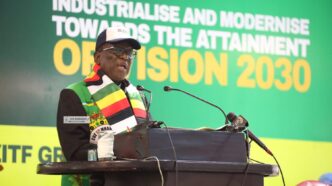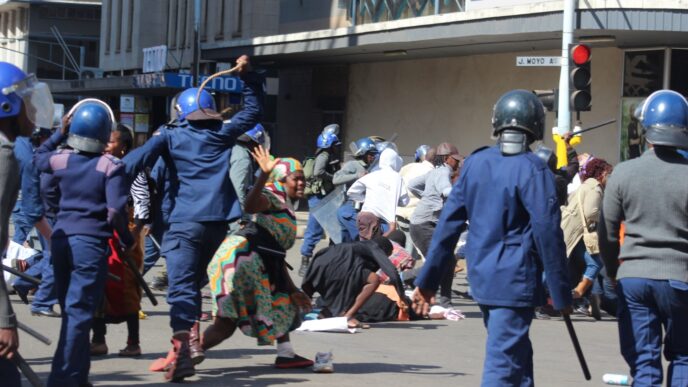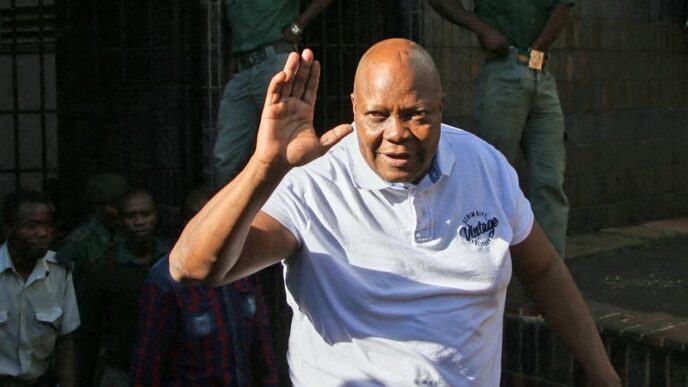The ruling party in Zimbabwe has endorsed a term extension for President Emmerson Mnangagwa, a move that requires a constitutional change, sparking outrage and concerns about increased authoritarianism.
Zanu-PF, which has faced allegations of corruption and mismanagement over its 45 years in power, revealed last week that its annual congress approved measures to keep Mnangagwa in office until 2030 and that legislative changes would be pursued.
Prominent lawyer Tendai Biti quickly vowed to “defend the constitution against its capture,” and opposition leaders scheduled a press conference for Tuesday to address the “constitutional crisis.”
Mnangagwa, 83, ascended to power in 2017 following a military-backed coup that removed Robert Mugabe, who had been president for 30 years.

Having been elected in 2018 and re-elected in 2023, Mnangagwa has been criticised for facilitating widespread corruption and infringing on human rights, while average Zimbabweans face significant hardships despite an expanding economy.
Zanu-PF’s “2030 agenda” had been anticipated for months before it was announced as the party’s stance on October 18.
Efforts over the past months to protest against the move have been met with a severe police response that resulted in the arrest of numerous individuals.
The two-term presidential limit was established in 2013, and amending it would require several legal procedures, including approval from two-thirds of both houses of parliament and a national referendum.
Internal division within Zanu-PF could lead a faction supporting Vice President Constantino Chiwenga to ally with the opposition to obstruct any constitutional amendment.
Analysts have warned that the party, which has been in power since independence in 1980, may not hesitate to circumvent constitutional protections.


 Trending
Trending 





